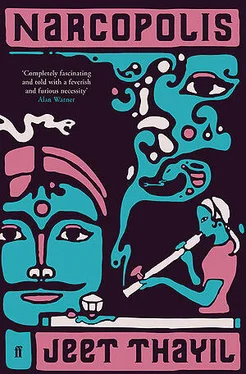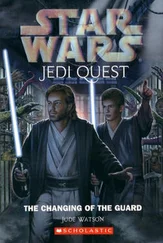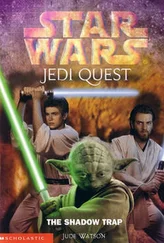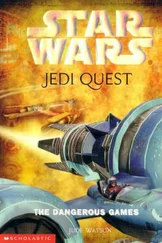Jeet Thayil - Narcopolis
Здесь есть возможность читать онлайн «Jeet Thayil - Narcopolis» весь текст электронной книги совершенно бесплатно (целиком полную версию без сокращений). В некоторых случаях можно слушать аудио, скачать через торрент в формате fb2 и присутствует краткое содержание. Год выпуска: 2012, Издательство: Faber & Faber, Жанр: Современная проза, на итальянском языке. Описание произведения, (предисловие) а так же отзывы посетителей доступны на портале библиотеки ЛибКат.
- Название:Narcopolis
- Автор:
- Издательство:Faber & Faber
- Жанр:
- Год:2012
- ISBN:нет данных
- Рейтинг книги:3 / 5. Голосов: 1
-
Избранное:Добавить в избранное
- Отзывы:
-
Ваша оценка:
- 60
- 1
- 2
- 3
- 4
- 5
Narcopolis: краткое содержание, описание и аннотация
Предлагаем к чтению аннотацию, описание, краткое содержание или предисловие (зависит от того, что написал сам автор книги «Narcopolis»). Если вы не нашли необходимую информацию о книге — напишите в комментариях, мы постараемся отыскать её.
Outside, stray dogs lope in packs. Street vendors hustle. Hookers call for custom through the bars of their cages as their pimps slouch in doorways in the half-light. There is an underworld whisper of a new terror: the Pathar Maar, the stone killer, whose victims are the nameless, invisible poor. There are too many of them to count in this broken city.
Narcopolis
Narcopolis — читать онлайн бесплатно полную книгу (весь текст) целиком
Ниже представлен текст книги, разбитый по страницам. Система сохранения места последней прочитанной страницы, позволяет с удобством читать онлайн бесплатно книгу «Narcopolis», без необходимости каждый раз заново искать на чём Вы остановились. Поставьте закладку, и сможете в любой момент перейти на страницу, на которой закончили чтение.
Интервал:
Закладка:
Chapter Four His Father, the Insect
One afternoon, Lee came home to find his parents sharing a bed for the first time in years. It was not because they had made up their differences but because the bed was the only item of furniture left in the house, other than the shrine and his father’s pipes. Money was short and his father had been selling things, small and not small, family heirlooms and clothes and furniture. In the newly spacious room his parents seemed to be strangers to each other and to him, damaged strangers with no claim to make and nothing to say. His father had placed a pipe on the bed. There was a tray with a lamp that tilted precariously on the lumpy mattress. When he took a drag his cheeks appeared to cave in. He had become very thin and it seemed to Lee that his father no longer resembled a human being. He was a pipe attached to a head with stick arms and legs. Or he was an inanimate object, a piece of knobbed wood, a walking stick or polished figurine. He was an insect, possibly a dangerous insect, a succubus with vertical eyes and internal antennae. Even the sounds he made were insect sounds, clicks and sucking noises. It was very interesting that the transformation which had overtaken his father had occurred so gradually that his family hadn’t noticed. When exactly had his father stopped being human? Was it a permanent transformation or would he return one day to his natural state? While his father smoked, his mother lay on her back with her eyes open, pinching the fingers of her left hand with her right. Though she said nothing she managed to convey a sense of immense dissatisfaction with her surroundings and with the man who lay beside her. Lee climbed into the bed and turned his back on his parents and went to sleep. He dreamed he was an orphan who lived on a mountain inhabited by dragons. There was no food or water and for his survival he depended on one of the dragons to bring him bits of meat and fruit. The years passed and he grew tall, but the bigger he grew the more his dragon protector seemed to diminish, until one day he realized that his friend, the dragon, had become a living skeleton, an intricate network of interlocked bones without flesh or blood or breath. He woke one morning and found a pile of broken bones beside him, and then he felt a rumble under his feet and he realized that the mountain was heating up from below, that there was smoke emanating from its crevices and the trees had dissolved into ash and the sun had disappeared. He resolved to walk off the mountain and keep walking until he found food or he died, but no sooner had he started to walk than a rain of cinders began to fall around him. He ran faster and faster until, exhausted, he lay down to mourn and die. He woke to the sound of drums. There was a fog so thick it was difficult to breathe. When his eyes adjusted he was in his parents’ house. He might as well have been outdoors because the weather had come inside. He heard someone knocking and he stumbled across the room, unable to see through the fog. His eyes were streaming and when he took a breath he coughed. He walked slowly in the direction of the knock and then he saw a shape coming towards him, a shape that pushed him back on the bed. His terror vanished when he recognized his mother and he wrestled her to the ground and opened the door. The fog thinned and many people rushed in. His uncle and another man poured pails of water on the smoking mattress. They took his father outside, where, sick with fever, he shivered uncontrollably in the warm sunshine. His uncle was overcome by a rush of emotion and he took off the silk jacket he was wearing and cut off the sleeves with a pair of scissors. He slipped the sleeves over Lee’s father’s legs. They took his father to a hospital, where he died the next day, not of asphyxiation but from malnutrition. Rich Uncle Lee came to the funeral with a two-storey house made of paper. As the house burned, Uncle said, Brother, I give you a big house. Lee laughed at his uncle. He said, Rich Uncle, you should have given my father a house when he was alive.
Lee and his mother went home after the funeral. Under the charred mattress on the bed he found a copy of his father’s last book and he read aloud the first sentence that caught his eye: ‘No remnants remained of the old ship except a splintered mast that the villagers planted in the sand, and so it happened that the rocky shores of the South China Sea became a deterrent to all but the most desperate of seafaring men.’ He turned back to the beginning and started to read the book through. What kind of story was it? It was presented like a biography but there were things in it that no biographer could know, for instance the things that men and women were thinking at important moments in their lives; and there was secret information as to how many years in the future one or the other important personage would die, and of which ailment; and there were wide pronouncements regarding the final outcome of Chinese history when unchecked enterprise would turn its cities into repositories of waste and poison; and there was a timeline for the world that charted how many years it would take for different parts of the planet to crack up and boil over into waste gas; and at the centre of it all was a character who was neither man nor woman, a charismatic autodidact who changed identity at will. Was it a kind of imagined autobiography? Or was it a historical novel, true fiction, because so much of the detail was accurate, no, more than accurate, it was indisputable? Lee read a page or two and then, overcome by sudden melancholy, he closed the book and put it under the mattress. Over the next few days he would pick it up and read as many pages as he could before sadness got the better of him and he put it away. It took him a long time to finish and when he got to the end he understood that the book had been his father’s true life’s work.
*
Prophecy begins a hundred years in the future, in 2056, when a young archaeologist, a Cherokee, fleeing an unnamed cataclysm in an unnamed city, arrives in a landscape that’s somehow familiar to him. He recognizes it from the remembered stories of his tribe, though the stories are no longer heard because the elders who knew them have died. He is in the land of his ancestors, the ancient place described in song and prayer. It is now an abandoned urban mesa. He wanders around for days. He is the only living thing. There are no coyotes or birds or insects. There is no running water. When he feels hunger or thirst he injects himself with vegetable extract, animal protein and sugar, and when tired he takes a four- or eight-hour sleep tablet that allows him to stay alert for as long as he needs to. One morning his belt pack emits a warning buzz followed by a mild siren. He starts to dig, reciting the names of the colours in his dye pack. Alice Blue, he says. He says, Mayan Sun. Then, very quickly, Electric Pink, Flesh Pink, True Pink. He says, No Colour Blue. He says, Medium Bastard Amber. When he runs out of colours he starts again, Alice Blue, Mayan Sun, and so on. Late in the afternoon he finds what he’s been digging for, the object that set off his siren, a cache of blue and white porcelain crockery in a rusted chest and a small brass medal with an inscription: Authorized and awarded by the Great Ming . He dates the medal to the late fourteenth century and then he makes another discovery. The porcelain was brought to the United States by the explorer Zheng He on the last of his seven voyages around the world. The first section ends abruptly at this point with the young Cherokee lifting the tiny brass medal to his eye in the fading light of the sun.
The second section is told from the point of view of an assistant to a Chinese shipbuilder. The assistant is one of thousands of men working in shifts to complete a flagship junk to the emperor’s specifications. There are pages of minutiae about shipbuilding, contentious passages as to the best wood, the ideal conditions for varnish and tung trees, the correct method of instruction for carpenters, how to make the lightest possible armour plating and how to make certain that the compartments below decks are watertight. There are knowledgeable references to the giant junk’s unique design and the exact dimensions of its enormous poop deck and cunningly placed storage cabins. The most revolutionary features are the masts, of which there are nine, a number considered wasteful by traditional shipbuilders. There is talk that the old builders are jealous but the emperor demands more junks, he wants a thousand in all and there’s no time for jealousy. Every shipbuilder in the land is called in to help build the new fleet. At the worst possible moment, after completing the design and some of the construction of the flagship, the master shipbuilder dies. The young assistant, who is never named, takes over. He works all day and sleeps in snatches and as the junk nears completion he begins to talk in a voice that is not his own. He talks with the authority of a seafaring man, or a man who knows the secret of ships at sea, who knows how to recognize the traits that make each vessel unique. The men look to him for instruction though his ideas are radical and not entirely feasible. The rumour spreads that the young assistant has been possessed by the spirit of the dead shipbuilder. How else would he know the things he does? The assistant does not address these whispers: he has no time. When the junk is completed it is four hundred and seventy-five feet long and a hundred and ninety feet wide. It is at this point in the story — that is, at the very end of the second section — that the author’s voice is heard, Lee’s father’s authentic voice, which tells the reader that the junk ‘was larger by far than the Santa Maria , which was a mere ninety feet by thirty, a dwarf in comparison’, and that ‘Zheng He commanded sixty such ships and many smaller ones, with more than twenty-seven thousand soldiers, shipwrights, poets and physicians, whereas Columbus commanded fewer than a hundred men’. Then the author makes a controversial suggestion: ‘I do not make the comparison with Columbus lightly, I make it deliberately and with forethought, for it is my contention that the voyager Zheng He discovered America seventy years before Columbus.’
Читать дальшеИнтервал:
Закладка:
Похожие книги на «Narcopolis»
Представляем Вашему вниманию похожие книги на «Narcopolis» списком для выбора. Мы отобрали схожую по названию и смыслу литературу в надежде предоставить читателям больше вариантов отыскать новые, интересные, ещё непрочитанные произведения.
Обсуждение, отзывы о книге «Narcopolis» и просто собственные мнения читателей. Оставьте ваши комментарии, напишите, что Вы думаете о произведении, его смысле или главных героях. Укажите что конкретно понравилось, а что нет, и почему Вы так считаете.












